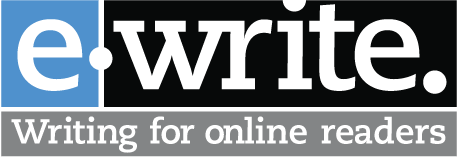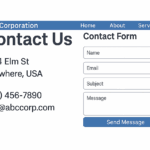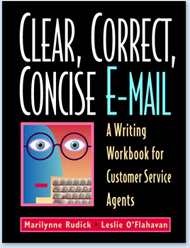[This article was originally published by WordRake.]
If you’re a heartbroken poet living in an unheated garret in Paris, there’s no doubt your writing process includes suffering: the hours you spend gazing out the window, the inky splotches your fountain pen leaves on the vellum, the tear stains on the never-adequate rhymes, the crumpled drafts piling up on the floor.
But if you’re just a regular working person who writes emails, reports, web content, presentations, fact sheets, or employee reviews as part of your job, there’s no reason your writing process should include suffering. Over the course of my career, I’ve listened to hundreds of people describe the dread, frustration, and disappointment their own writing process is causing them. But these negative feelings aren’t baked into the writing process. If you can recognize where the steps you take are causing you harm, you can change them.
What is “the writing process”? It’s the distinct—but recursive—series of steps you take to produce a finished piece of writing you’ll share with readers: Planning, Organizing, Drafting, Revising, and Proofreading. Each step in the process requires a different type of thinking from the writer, and writing projects go pretty smoothly when you proceed thoughtfully through the steps.
Wait what? That’s not how you write? You don’t proceed thoughtfully? You find yourself bitterly stuck along the way from concept to published version? I know why and I can help. Here are three ways you can improve your writing process and reduce your suffering along the way.
1. Wallowing in research isn’t Planning
Your writing project has a fast-approaching deadline, and you just can’t stop looking stuff up. You fall down one internet wormhole after another. You find a research study that supports your main point, then you click on all the citations in the bibliography. Your anxiety rises; the research is taking too long and creating too large a stockpile, but you can’t stop. Just one more statistic, link, quote, infographic, bar chart!
- Stop the madness. Don’t allow yourself to gather information before you’ve completed two essential Planning tasks:
- List your readers. Know who you are writing to. List your readers by name or role. Identify both the intended readers and any internal readers (Comms Team, your boss, etc.) whose approval you’ll need on the final document.
- List your reader’s questions about the topic. Take no more than five minutes. Write down at six to eight questions your readers will have about your topic.
So, let’s imagine you are the director of the government affairs team in a large nonprofit organization. You’re writing a request to the CFO and CHRO for a budget to hire three undergrad interns next summer instead of bringing in eight unpaid interns like you did last summer and the 10 summers before that. Before you do one lick of research, list the questions your readers will have on your topic. Do it quickly, and don’t worry about the order. Your list of questions might look like this:
- How much will you have to pay each intern? What’s the going rate?
- Will you recruit paid interns differently than unpaid interns?
- How can you be sure paid interns will perform better than unpaid ones?
- Will the paid interns’ responsibilities be different than the unpaid ones from the past?
- Will a paid internship program have other costs than hourly wages?
- What will next summer’s internship program be if we say no to paying the three interns? Will you still bring in unpaid interns?
- Why have you asked for three paid interns? Why not four or two, etc.?
With this brief question-listing Planning task behind you, you can conduct your research with focus. Gather information that helps you answer your readers’ questions only.
2. Starting with Drafting doesn’t exempt you from Planning and Organizing
Your writing project has a fast-approaching deadline, so you put your fingers on the keyboard and start to type. If the very first thing you do is write sentences and arrange them in paragraphs, you’re setting yourself up to suffer. “Sentences in paragraphs” is what your finished email, report, or grant application, etc. will contain, but it’s not practical to create sentences in paragraphs (aka “Drafting”) before you’ve done any Planning or Organizing. There’s no free lunch when it comes to the writing process.
Your brain must do the work of Planning (“Who are my readers and what are their questions?”) and Organizing (“What types of information will I provide?” How will I sequence my information?) before Drafting, or you’ll be doing these two steps while Drafting. In my experience, people who say they have writer’s block—the dreadful experience of typing a couple of sentences, deleting one of them, writing two more, deleting all of it and starting over, getting frustrated—are actually people who are starting with Drafting before Planning or Organizing. The brain simply seizes up. Writer’s “block,” indeed!
Don’t fold three writing process steps into one. Postpone writing sentences and arranging them into paragraphs. Write a list of readers and a list of their questions. Write a standard Roman-numeral-capital-letter outline or a cluster map with thought bubbles and connector legs. Give your brain the opportunity to do the distinct types of thinking required by each step before asking it to do the productive wordsmithing of Drafting.
3. Chasing the “right word” isn’t Revising
Maybe it’s your unwillingness to suffer that makes you fumble the Revising step of the writing process? You’ve expended great effort to draft the piece, and now it’s time to re-see it through your readers’ eyes. Is it concise, accurate, and convincing? Will it enable the reader to take action? Will it have the outcome you intended?
But Revising is so much work. You’re sick of looking at the thing. And you really like the clever kicker you closed with, even if your reader might not get the reference. Truthfully, you don’t know how you’ll cope if a close look at the draft reveals it needs a lot of work. You’ve run out of confidence that you can make it any better, so you make tiny, nearly meaningless tweaks. You change “happy” to “glad” and “inconvenience” to “hassle.” You place periods at the ends of all the bullet points, then you take them off again. You replace contractions with full words.
Revising isn’t a trip to the oral surgeon. If you’ve invested in Planning and postponed Drafting until you’ve completed Organizing, Revising shouldn’t be painful. Do the work. Ensure you’ve answered your readers’ questions. Review your main message and confirm it’s presented at the beginning of the document. Notice whether any sections are longer than they need to be and edit for brevity. Make meaningful changes while you’re Revising; save the nitpicks for Proofreading.
Everyone’s individual writing process demands effort, but no one’s process should include suffering. If you dread writing, if you find your writing projects take ten times as long as they should, or if your final products don’t achieve results, check your writing process. If you change a few of your writing habits, your written products will be better and, dare I say, you may grow to like writing more.








0 Comments